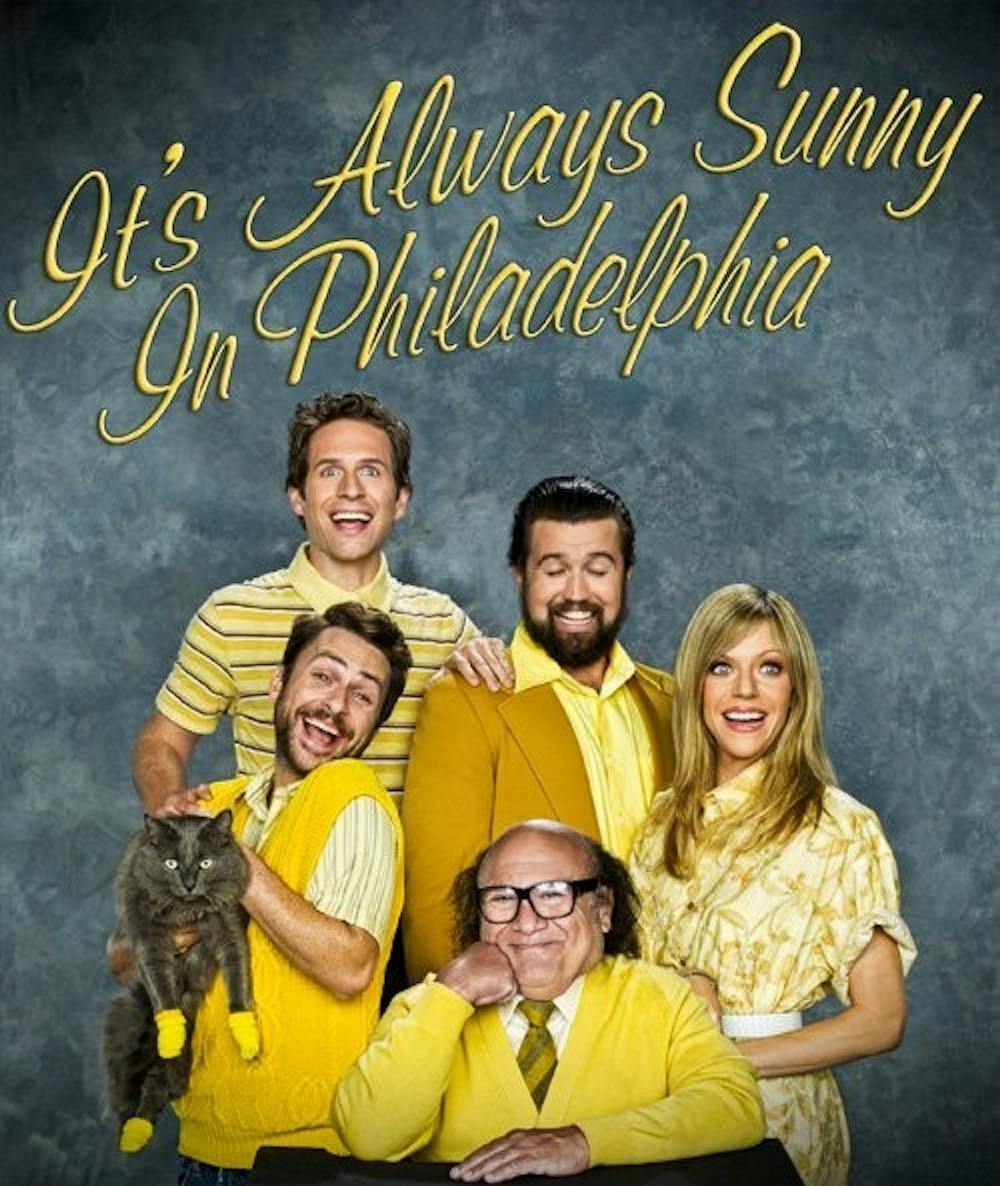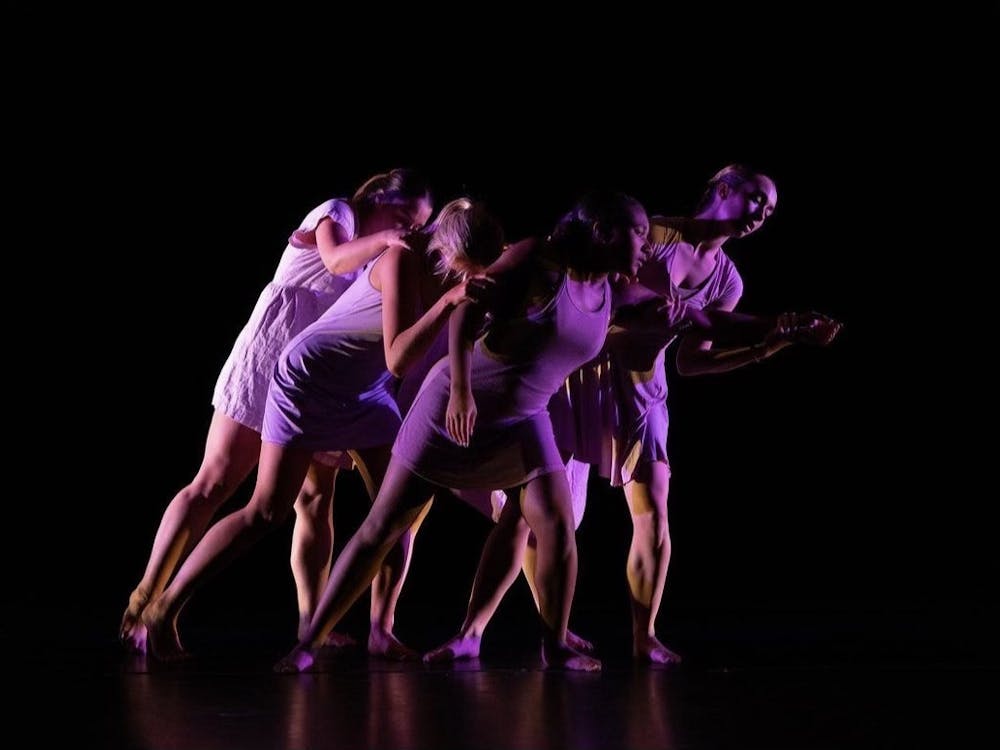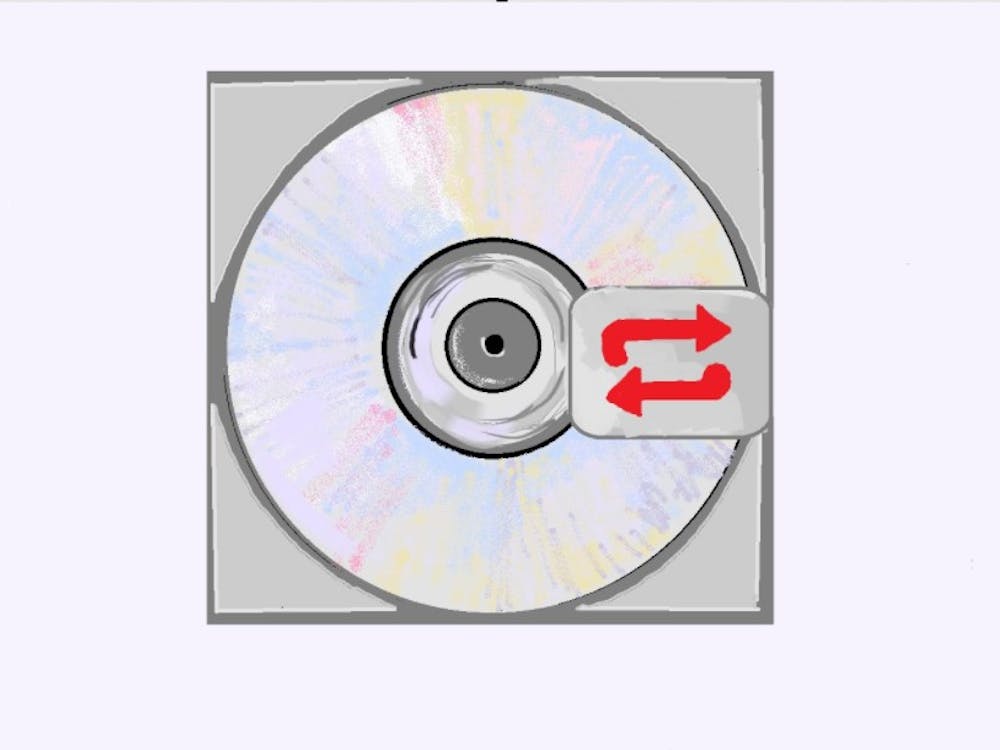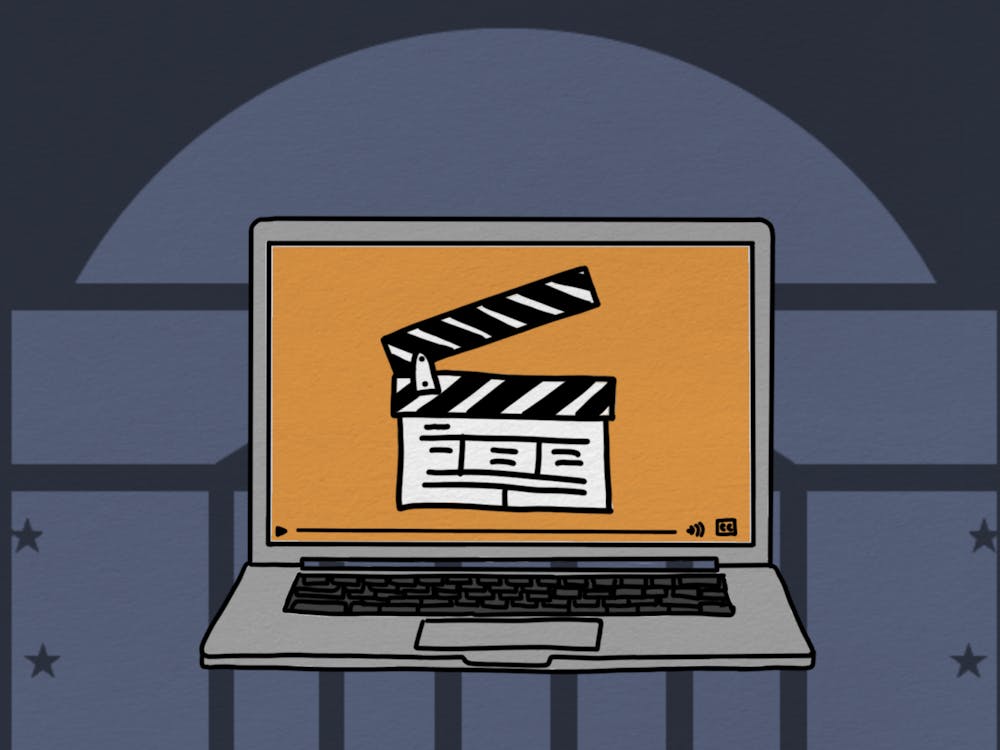For a comedy revolving around the repulsive acts of five raging narcissists, it is surprising that “It’s Always Sunny in Philadelphia” has prospered on air for 12 seasons. However, there is a reason for the show’s enduring success. The actors comprising the Gang — Dee (Kaitlin Olson), Dennis (Glenn Howerton), Mac (Rob McElhenney), Charlie (Charlie Day) and Frank (Danny DeVito) — masterfully manifest the lunacy, vulgarity and lowbrow antics of their respective characters. The Gang represents the worst in all of us — each personal insult, pursuit of fame and horrifying scheme culminate into a series that astutely examines the consequences of extreme selfishness and disregard for social mores.
The later seasons of “Always Sunny” often over-rely on gimmicks and call-backs to earlier episodes. Though season 12 continues to adopt gimmicks as narrative structures, the results are mostly enjoyable. “Old Lady House: A Situation Comedy” scrutinizes the manipulative nature of multi-cam sitcoms, as Dennis learns that strategic use of laugh tracks can deceive an audience into laughing — even if the content is unfunny or downright sinister.
“Making Dennis Reynolds a Murderer” parodies crime documentary installments such as “Making a Murderer” and “The Jinx.” These episodes provide decent laughs and some insight into the more condemnable features of today’s zeitgeist, but are ultimately forgettable. They fail to echo the boldness and ambition of the show’s classic episodes like “Dennis and Dee Go on Welfare” and “The Nightman Cometh.”
However, the musical season opener “The Gang Turns Black” successfully uses gimmick structure to explore the self-involved perspectives of the Gang. Like many episodes of “Always Sunny,” its premise is offensive — the Gang appears as black versions of themselves after getting electrocuted while watching “The Wiz.” Fortunately, the show often tackles sensitive subject matter — gender identity, gun control, drug abuse — to illuminate the Gang’s blind spots and subsequently offer thoughtful, ambitious social commentary.
“The Gang Turns Black” is no exception to this strong track record. As the Gang experiences racial profiling and police brutality, they begin to empathize with trials and tribulations experienced by black Americans. The episode is strong in its execution of a cringeworthy premise, demonstrating the series’ unflinching and risk-taking ability to find humor in the unlikeliest of places.
Throughout the show’s run, the Gang’s immorality has severely affected its secondary characters — from the Ponderosas to Charlie’s mom and perhaps most notoriously, Cricket. After a series of interactions with the Gang, Cricket underwent a massive downward spiral — degrading from a priest to an intensely disfigured, drug addicted and homeless Charles Manson lookalike. This season’s “A Cricket’s Tale” considers the possibility of his redemption. It briefly seems as though Cricket has escaped the Gang — he gets a job and bonds with an upbeat co-worker. However, this fantasy eventually reveals itself as a hallucination induced by PCP. Cricket’s masochism draws him to the Gang, who will continue to abuse him without any regard for the damage they inflict upon this once decent man.
The Gang’s oblivious atrociousness — seen in every obsession, every endeavor, every scheme — acts as a distraction from their nihilist, miserable existence. Living ordinarily happy lives has evolved to an intangible ideal for them, and despite these devastating unveilings, there is a special joy in seeing the protagonists indulge in their demented misadventures — evidenced by the show’s extended 12 season run.
Though faithful to its darkly comic and misanthropic tone, season 12 of “Always Sunny” offers brief glimpses of humanity in its deranged characters. Charlie sincerely declares his love for the Waitress, Dennis tearfully says farewell to his infant son and later vows to leave Philly to properly raise him and after years in the closet, Mac finally embraces his homosexuality. Each of these moments are moving and heartfelt despite coming from a manic stalker, a sexually manipulative sociopath and a self-imaged obsessed narcissist. Day, Howerton and McElhenney portray genuine emotion so convincingly that the viewer willingly ignores the characters’ monstrous selves to become immersed in their fleeting, earnest sentiments.
Though past its prime, “Always Sunny” continues to challenge itself by taking the absurdity of its protagonists to new heights in its momentous 12th season. It still stands as one of the funniest, most sharply-written comedies in today’s television landscape.





